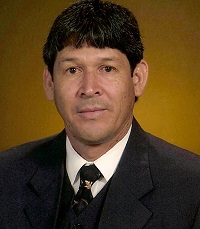Reading 3: The Gospel is the power of God
In Romans 1:1-17, the Apostle Paul provides a snapshot of the world in which he lived and interpreted in the light of his encounter with the risen Christ. First Century Rome, the cosmopolitan imperial capital, is described by Paul in terms of polarizations: Greeks and Barbarians, Wise and Foolish, Greeks and Jews, and Christians and non-Christians. Paul had not been in Rome and seemed to struggle to describe the city. Nonetheless, his description seems to fit the Greek/Roman culture he knew and intended to reach out with the gospel that he calls: “the power of God for salvation to everyone who believes.”
Paul was an interesting character, a Roman citizen, a Hellenistic Jew, a former Jewish religious leader, and most-recently a converted follower and servant of Jesus Christ. Paul could cross over cultural and religious boundaries and systems, and integrate their most important values into one single identity: a slave who serves Christ. No wonder why Paul states: “I am not ashamed of the Gospel,” for it was countercultural to become and call oneself a slave. Only after Paul has self-described as a servant of Jesus Christ, he brings his Jewish credentials and Law-based theology of righteousness.
Paul, Augustine, Luther, and most recently Karl Barth, have explored the connection and meaning of these concepts of righteousness, faith, and salvation. Each one of them, in his own time, could rediscover perennial truths regarding God’s word and Gospel in relationship to us and to the world. It is liberating that Christians have never been called to holy culture war to impose ours to others, but to become slaves and servants of Christ because we have been touched and transformed by the gospel…the power of God. The gospel does not include a metanarrative of Christ for, against, or above any culture.
What could Paul’s concepts of being a slave and to serve God mean in our cultural contexts today?
Paul valued his multicultural identity: What is your cultural identity and why do you identify with that culture(s)?
Gracious God, thanks for our cultural heritages. Thanks for calling faithful servants who throughout the history of our Faith, have led your people to your light and power. Let us hear your voice and be your faithful servants now. Amen.
–The Rev. Alfredo M. Oviedo is a first-generation immigrant from Mexico, and a pastor at Grace, Hendersonville, with a focus on multicultural ministry in that congregation. He is also a current D. Min. student at Lutheran Theological Seminary at Philadelphia.

